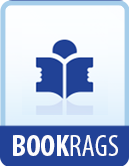Rouse thyself from the contest of distress (Gloss, “the sickness sent by the fairy women”) for all is gone of thy vigour among heroes who ride in chariots, and thou sittest (?) in the place of the young and thou art conquered (? condit chellti if connected with tochell), and thou art disturbed (?) in thy mighty deeds, for that which Labraid’s power has indicated rise up, O man who sittest (?) that thou mayest be great.
“Chased thee away” in line 7, for condot ellat, perhaps connected with do-ellaim (?).
PAGE 67
Thurneysen’s translation (p. 91) of Emer’s lament may be referred to, but he misses some strong points. Among these are:
Line 5. “Woe to Ulster where hospitality abounds.”
Line 12. “Till he found a Druid to lift the weight.”
Line 25. “Were it Furbaide of the heroes.”
Line 27. “The hound would search through the solid earth.”
Line 29. “The hosts of the Sid of Train are dead.”
Line 30. “For the hound of the Smith of Conor.”
Line 34. “Sick for the horseman of the plains.”
Note the familiarity with the land of the fairies which Laeg is asserted to have in the first verse of the poem: this familiarity appears more than once in the Literary form of the story. Laeg speaks of the land of Labraid as “known to him” in his- first description of that land, again in the same description Laeg is recognised by Labraid by his five-folded purple mantle, which seems to have been a characteristic fairy gift. Also, Laeg seems at the end of the tale to be the only one to recognise Manannan. There is no indication of any familiarity of Laeg with the fairy country in the Antiquarian form.
The different Ulster heroes alluded to are mostly well-known; all except Furbaide are in “Mae Datho’s Boar.” Furbaide was a son of Conor; be is one of the eighteen leaders who assemble on the Hill of Slane in the “Tain bo Cuailgne.”
The Smith of Conor is of course Culann, from whom Cuchulain got his name.
PAGES 68, 69
A translation of Emer’s “Awakening of Cuchulain” may be found in Thurneysen, p. 92 but there are one or two points that seem to be noted as differing from the rendering there given.
Lines 3 and 4 seem to mean: “Look on the king of Macha, on my beauty / does not that release thee from deep sleep?” Thurneysen gives “Look on the king of Macha, my heart! thy sleep pleases him not.” Mo crath can hardly mean “my heart.”
Line 6 is in the Irish deca a churnu co comraim! “see their horns for the contest!” Instead of comraim Thurneysen seems to prefer the reading of the second Ms., co cormaim, and translates “their horns full of beer.” Churnu may mean trumpets as well as drinking-horns, and Emer would hardly call on Cuchulain to throw off a drunken sleep (line 21) and then take to beer!




